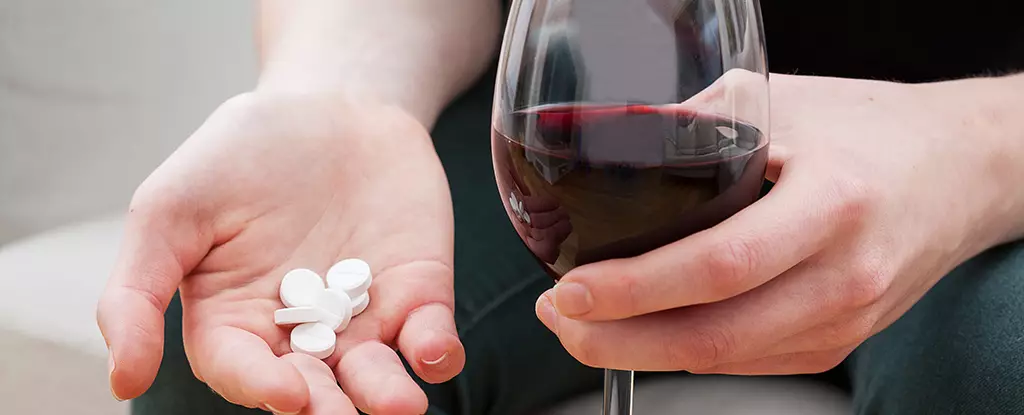Alcohol has long been known to lower social inhibitions and alter one’s behavior. However, what many people fail to realize is that mixing alcohol with medications can have dangerous consequences. The chemicals in the brain are delicately balanced between excitation and inhibition, and alcohol disrupts this balance. By increasing inhibition in the brain, alcohol leads to relaxation and a decrease in social inhibitions. However, consuming excessive amounts of alcohol can impair coordination, speech, memory, and even lead to sedation and depression. When alcohol interacts with medications, it can amplify the effects or create new side effects that can be detrimental to one’s health.
Medications can interact with alcohol in various ways. Alcohol can interfere with the absorption of a medication or alter the way it functions in the body. If a medication already has side effects similar to those of alcohol, the combination can intensify these effects. For instance, mixing alcohol with ritalin, a medication used to treat ADHD, can significantly increase heart rate and the risk of a heart attack. Similarly, combining alcohol with ibuprofen raises the chances of stomach upsets and bleeding. Furthermore, alcohol can also affect the breakdown of certain medications, making them less effective. Some opioids, cannabis, and even ritalin can be rendered less potent when combined with alcohol. Additionally, alcohol can alter the pathway through which a medication is broken down, potentially producing toxic chemicals that harm the liver. This is particularly problematic with medications containing paracetamol. In extreme cases, the consequences of combining alcohol with medications can be fatal.
It is important to note that the effects of mixing alcohol and medication can vary among individuals. Older adults, women, and individuals with smaller body sizes are particularly vulnerable to interactions. Older adults metabolize medications more slowly, making them more susceptible to side effects. This is especially true for medications that act on the brain, resulting in increased dizziness and a higher risk of falls. Women and individuals with smaller body sizes tend to have higher blood alcohol concentrations when consuming the same amount of alcohol as their larger counterparts. This is due to the lower water content in their bodies, reducing the dilution of alcohol.
It is crucial to be aware of which medications should not be mixed with alcohol. While some medications carry explicit warnings on their packaging, it’s always wise to consult with a pharmacist before consuming alcohol while on medication. The most common prescription medications that interact with alcohol include benzodiazepines (used for anxiety, insomnia, or seizures), opioids for pain management, antidepressants, antipsychotics, and certain antibiotics like metronidazole and tinidazole. Beyond prescription medications, over-the-counter drugs such as sleep aids, motion sickness remedies, cold and flu medications, allergy treatments, and pain relievers should not be combined with alcohol.
When picking up a new medication from a pharmacist or purchasing one from a store, always check the packaging for alcohol-related warnings. Additionally, seek advice from a pharmacist or healthcare provider concerning the consumption of alcohol while taking medication. If you have concerns about drinking alcohol while on medication, it is vital to discuss this with your doctor or pharmacist to better understand the potential risks.
Mixing alcohol with medication can have disastrous consequences on one’s health. It is imperative to recognize the effects of alcohol on the brain and how it can amplify or alter the effects of medications. Identifying which medications interact with alcohol and seeking professional guidance can help mitigate the risks associated with mixing alcohol and medication. Remember, it is always better to err on the side of caution when it comes to your health and well-being.


Leave a Reply